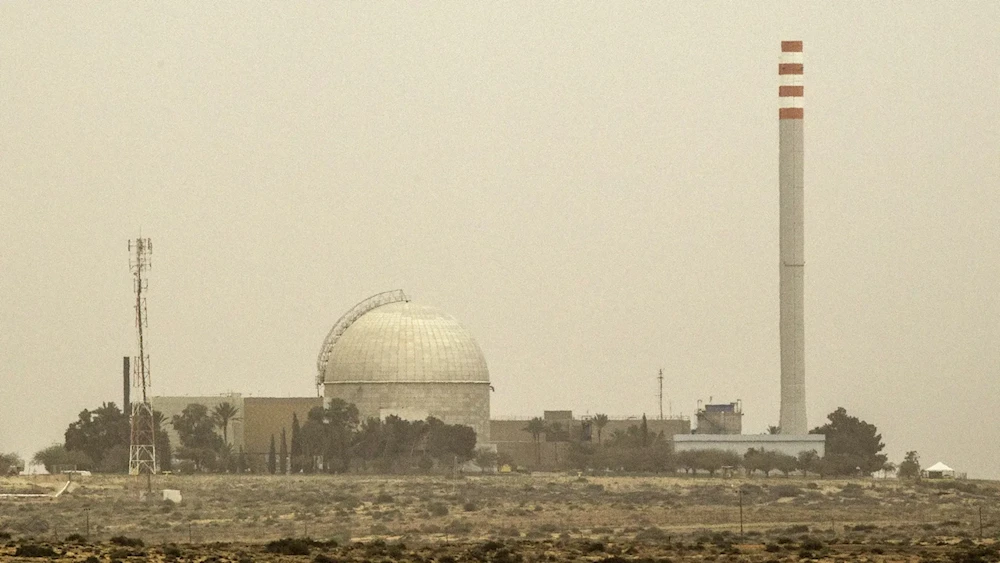'Dimona' reactor wasn't among targets of Iran's response: Sources
The Israeli newspaper Maariv had reported that the analysis of low-quality satellite images revealed there was at least one hit in the "Dimona" Nuclear Reactor.
-

A partial view of the Dimona nuclear power plant in the southern occupied al-Naqab desert. (Jack Guez/AFP via Getty Images)
The Israeli Maariv's news about the "Dimona" reactor being one of Iran's targets in its retaliatory strike is false and is part of the psychological warfare waged by "Israel", Fars News Agency reported Thursday citing informed sources.
The sources stressed that all areas in the occupied territories are within Iran's range of fire, but the "Dimona" reactor was not among its targets in the recent punitive operation against Israeli targets.
On Wednesday, Ori Vialkov, a researcher specializing in "Israel's" wars, told Maariv that the analysis of low-quality satellite images revealed there was at least one hit on one of the buildings in the "Dimona" Nuclear Reactor and up to two hits in its vicinity as a result of the Iranian strike.
Iranian President Ebrahim Raisi revealed Thursday that more than 10 countries attempted, using their technological capabilities, to thwart Operation True Promise but failed.
The United States with all its capabilities, as well as France, other European countries, and some regional states, took part in intercepting Iranian missiles and drones launched toward Israeli targets in occupied Palestine, Raisi pointed out during a speech in the city of Shahrud, east of Tehran.
He indicated that the precise Iranian retaliatory strikes against "Israel" took place even though Iran did not employ the element of surprise but proceeded with the attack according to a prior announcement.
The Iranian President warned that if the Israeli occupation entity makes a mistake and attacks Iranian territories, Tehran's response will make "Israel" and its backers regret their actions.
The Iranian President's statements echoed those of the Commander-in-Chief of the Iranian Army, Major General Sayyed Abdolrahim Mousavi, who affirmed to Al Mayadeen that the Iranian Armed Forces are at utmost readiness to decisively and strongly respond to any aggression against the Islamic Republicc's interests.
In a related context, the Commander of the Aerospace Force of Iran's Islamic Revolution Guard Corps (IRGC), Brigadier General Amir Ali Hajizadeh, affirmed that his country confronted the Israeli occupation entity with minimal capabilities and outdated weapons.
Hajizadeh noted that Iran did not use any of its state-of-the-art "Khorramshahr," "Sejjil," "Haj Qasem," "Khaibar Shekan," or hypersonic missiles during Operation True Promise, highlighting that the aforementioned missiles enjoy heavy and high capabilities.
Read more: Iran may alter nuclear doctrine amid Israeli threats to nuclear plants

 3 Min Read
3 Min Read








